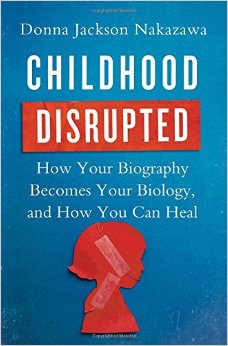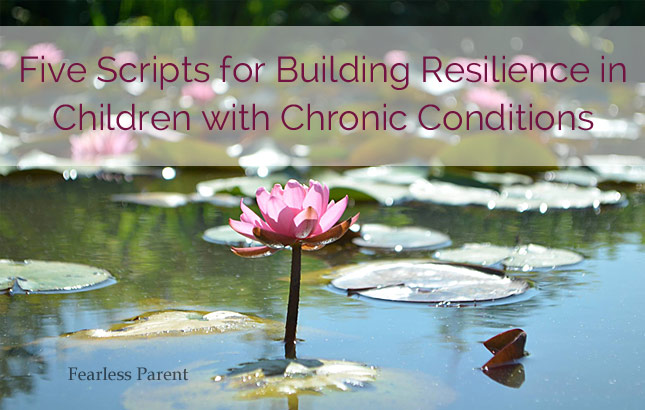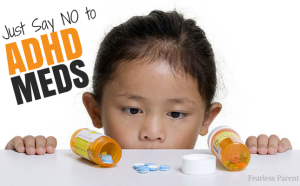Imagine this: you’ve had a long day—stress at work, an argument with your spouse, an unexpected bill to deal with—and on top of everything else, your teenager, whom you’ve asked three times to take out the garbage, still won’t get off his computer. You snap and tell him that he’s being selfish, then instantly regret saying the words; you know there are better ways to communicate with your child. It’s probably not all that difficult to imagine this scenario, because you’ve lived it; we all have. Parenting is challenging in even the best of circumstances. We may worry that we’re not always making the right moves, or that we’re not responding to our children in the correct way. When we don’t succeed, when we fail to fit the image we hold in our heads of the perfect parent, we blame ourselves. Stanford neuroscientist and MacArthur fellow Robert Sapolsky hit the nail on the head when he recently tweeted: “There’s nothing like parenthood to make you really neurotic as you worry about the consequences of your every act, thought, or omission.” We want to get it right.
Add a child’s health concern to the mix, and that worry increases exponentially. There is no pain greater than knowing that your child is in pain and that you can’t fix it. This is especially true in the face of a growing body of science that tells us that stress in childhood, including the stress that comes with managing a chronic condition, can produce changes in the genes responsible for regulating the body’s stress response. These epigenetic changes, in turn, trigger a greater state of inflammation and can set the stage for more health problems later in life. Early adversity has also been shown to alter the architecture of the young brain by causing changes in important synaptic connections. When the developing brain is chronically stressed, it sustains a loss of gray and white matter that, research indicates, can lead to mood disorders, including depression and anxiety. These biophysical changes can pre-write the script for how a child will react to the world around him for the rest of his life, how he will work, parent, befriend, and love for years to come.
 But this science isn’t meant to frighten parents or blame them; we’re all doing the very best we can. Rather, it allows us to help ourselves and our children from an entirely new vantage point. The same studies that warn us about the long-term effects of chronic stress also tell us that a good or bad childhood doesn’t hang on a single moment, or even a string of them. In fact, if we are to take away only one thing from Adverse Childhood Experience research, it’s that the brain and body are never static; they are always in the process of becoming and changing.
But this science isn’t meant to frighten parents or blame them; we’re all doing the very best we can. Rather, it allows us to help ourselves and our children from an entirely new vantage point. The same studies that warn us about the long-term effects of chronic stress also tell us that a good or bad childhood doesn’t hang on a single moment, or even a string of them. In fact, if we are to take away only one thing from Adverse Childhood Experience research, it’s that the brain and body are never static; they are always in the process of becoming and changing.
No matter how old our children are, there are scientifically supported, relatively simple steps we can take to decrease the inflammatory response and create new neural pathways that promote healing. As parents, we have the ultimate role in preventing and modulating the effect adversity has on our children, and that begins with learning to take care of ourselves. We all want to help ensure that our kids grow up to live the best, healthiest lives possible, and we certainly don’t want to be part of a problem. That’s why the single most important thing we can do for them is to manage our own unresolved issues, and keep them from spilling over into their lives. The more we learn to deal with the remnants of our past, including whatever trauma we might’ve experienced, and regulate our own behavior, the more we’ll be able to provide our kids with what they need to feel safe. (And this includes seeking professional help if we need it.)
In my newest book, Childhood Disrupted: How Your Biography Becomes Your Biology, and How You Can Heal, I found that research emphasizes how important it is to be prepared for difficult parenting moments, so that rather than overreact, we help kids to learn life skills, limits, and resilience. When we’re caught between over-parenting and overreacting, struggling to find some middle ground, it can be helpful to have a few scripts in the pocket.
#1: If you lose your temper, make a repair right away
We’re all going to slip up from time to time, and say things we don’t mean because we’re frustrated or overwhelmed. It happens; how we handle ourselves afterwards is what really counts. Let’s return to the scenario above, the garbage incident: you’re inundated with meetings and e-mails and bills, and your teenager’s forgetfulness is the straw that breaks the camel’s back. After you lose your temper (who doesn’t, every once in awhile?), you can serve your child best by taking a moment to collect yourself and apologizing. You might say, “I raised my voice, and it must’ve scared you. I wish I hadn’t done that. I’m sorry,” or better yet, “Hey, this is what has been happening, this is why I reacted that way, and I’m sorry. What I said and did was wrong, and I want to do better.” Admitting that your behavior fell short of the kind of good parenting you’re aiming for won’t diminish you in your child’s eyes; instead, it’ll gain you credibility and establish trust. And the faster you make the repair, recent science confirms, the less likely it is that an unhappy or frightening memory will stick.
#2: This doesn’t mean that we don’t impose limits
It’s important to let our kids know that we hear them, and to validate their emotions, but they also need to know that they’re accountable for their actions. They can’t come home late, throw things when angry, scream at you, or not let you know where they are when you ask them to check in. If you’ve lost your temper in response to something your child has done that breaks rules you’ve clearly established, it’s best to apologize for your reactivity, while also making sure that she knows what behavior prompted your response. You could say something along the lines of, “This must be upsetting. It’s hard not to get your way. Our rule, as you know, is that you can’t stay out past your curfew, and here are the consequences for that.” That way, you’re sending two messages at once: you’re admitting that you regret your immediate response, and you’re still standing your ground.
#3: Emphasize the good
Research shows that, in any relationship, it takes five good interactions to make up for a single bad one, because our painful experiences are a great deal more memorable than our pleasant ones. We need to help our children and ourselves balance the stressful moments, interactions, and even adverse experiences with a sense of wonder and goodness. We need to help our kids look for and take in what’s good. If for instance, you see a goldfinch or a woodpecker in the garden, or a fish in a pond, talk with your child about the beauty of the moment; you could say, “Isn’t it nice that we can be here together to see this?” When you emphasize the good, it makes the not-so-good easier to manage and allows your child to build new, positive neural networks that enhance their resilience.
#4: Don’t solve all their problems for them
The last thing we want is to add to a chronically ill child’s stress load. Sometimes, however, it can be difficult to differentiate between harmful experiences and experiences that will prepare children to hold their own in a tough world. We all have a tendency to want to shield our children from anything that might cause discomfort, especially when they have so much on their plates already. But we need to distinguish between safe and unsafe struggles. If, for instance, your child left her class notes in her school locker and can’t prepare for a test the next day, you can support her and offer advice without taking care of her problems for her; you might say something like, “It sounds like you have a problem, but I know you can handle it. What are your options?” You’ll do little good to march into school and demand that the teacher give her an extra day to study, though that may very well be your first instinct. If we seek to protect our children from even mild adversity, we deprive them of opportunities to deal with hardship, disappointment, and loss, and develop a little grit. At the same time, if our children are facing bullying; struggling with learning disabilities or emotional health problems; experimenting with sex, drugs, or alcohol; or coming up against abuse of any sort, it’s our job as parents to intervene. This kind of toxic stress doesn’t give them grit; it hurts their bodies and brains.
#5: Practice mindfulness-based stress reduction with your child
Recent studies have found that individuals, including children, who practice mindfulness meditation and mindfulness-based stress reduction, experience changes in genes that regulate their stress response and their output of inflammatory hormones. You may both benefit from learning how to manage stressful feelings and be more fully present in the moment. As an added bonus, the time you spend together working on your thought patterns will likely strengthen your bond.
Sometimes, especially when we’re feeling overwhelmed, we need to remind ourselves that there is no such thing as the perfect parent, or a parent who does everything so wisely that their child’s developing brain creates pristine neurobiological interconnections. But we can nurture children and teens in ways that prevent chronic, unpredictable stress from taking a long-term toll. The new science on stress in childhood can provide us with avenues to healing and hope for our children’s futures. We can utilize this science to help build resilience and to give them the best possible chance to live happy, healthy lives.
 Donna Jackson Nakazawa is an award-winning science journalist and public speaker, whose work explores the intersection between neuroscience, immunology, and the deepest inner workings of the human heart. Her most recent book, Childhood Disrupted: How Your Biography Becomes Your Biology, and How You Can Heal (Atria Books / Simon & Schuster, 2015), examines the relationship between childhood adversity and adult physical health, and guides readers facing chronic illness toward healing and transformation. Her other works include The Last Best Cure (Hudson Street Press / Penguin, 2013), in which she chronicles her year-long journey to unlock the restorative powers of the brain; The Autoimmune Epidemic (Touchstone, Simon & Schuster, 2008, 2009), an investigation into the reasons behind today’s rising rates of autoimmune disease; and Does Anybody Else Look Like Me? (Perseus, 2003). Nakazawa lectures nationwide. Learn more at DonnaJacksonNakazawa.com.
Donna Jackson Nakazawa is an award-winning science journalist and public speaker, whose work explores the intersection between neuroscience, immunology, and the deepest inner workings of the human heart. Her most recent book, Childhood Disrupted: How Your Biography Becomes Your Biology, and How You Can Heal (Atria Books / Simon & Schuster, 2015), examines the relationship between childhood adversity and adult physical health, and guides readers facing chronic illness toward healing and transformation. Her other works include The Last Best Cure (Hudson Street Press / Penguin, 2013), in which she chronicles her year-long journey to unlock the restorative powers of the brain; The Autoimmune Epidemic (Touchstone, Simon & Schuster, 2008, 2009), an investigation into the reasons behind today’s rising rates of autoimmune disease; and Does Anybody Else Look Like Me? (Perseus, 2003). Nakazawa lectures nationwide. Learn more at DonnaJacksonNakazawa.com.













Thanks..helpful info
I believe this is excellent information.
Only when I began to recognise & join the dots on my own (7) ACEs was I enabled to really start reaching out to my youngest child with more understanding and compassion. She has been through significant trauma too, her dad was very abusive to all of us (but especially to her and I). When I learned about attachment theory I knew that this was part of what was “wrong” with our relationship – we’d never really been allowed to have that bond, let alone supported too.
Thank you for this, and your book. I found it very confronting but also confirming – that I am on the right track and my hard work on self and relationships will pay off for my kids.